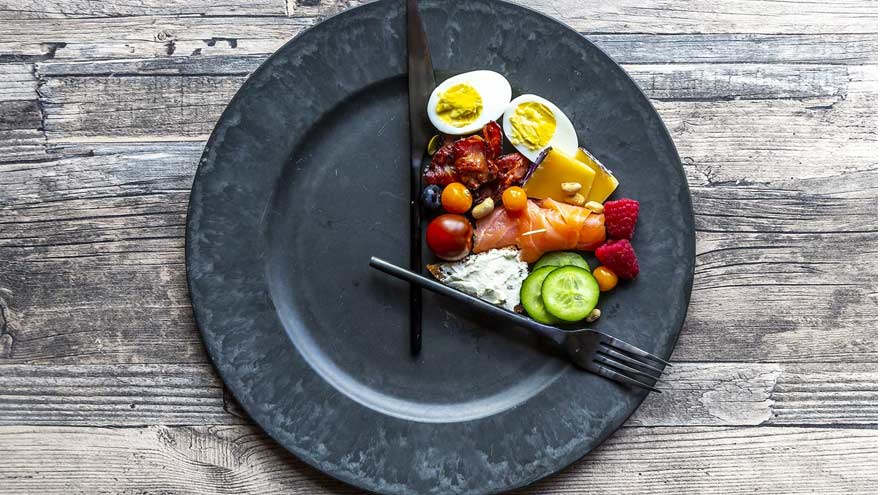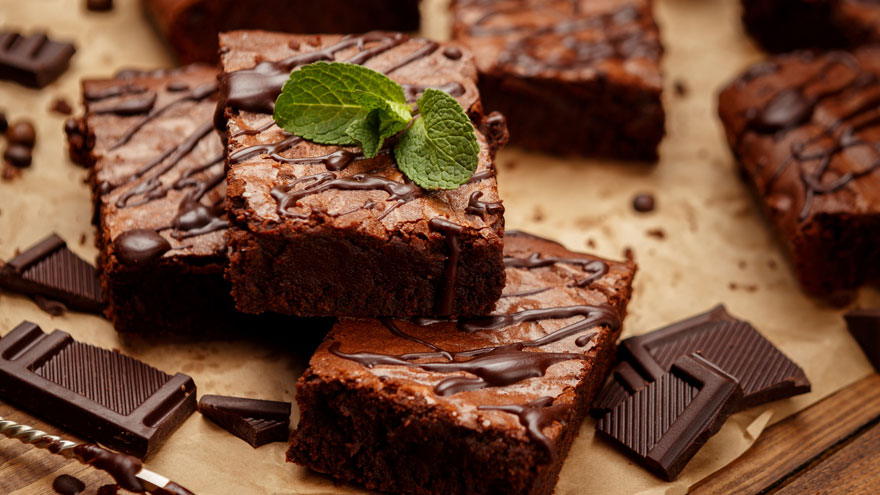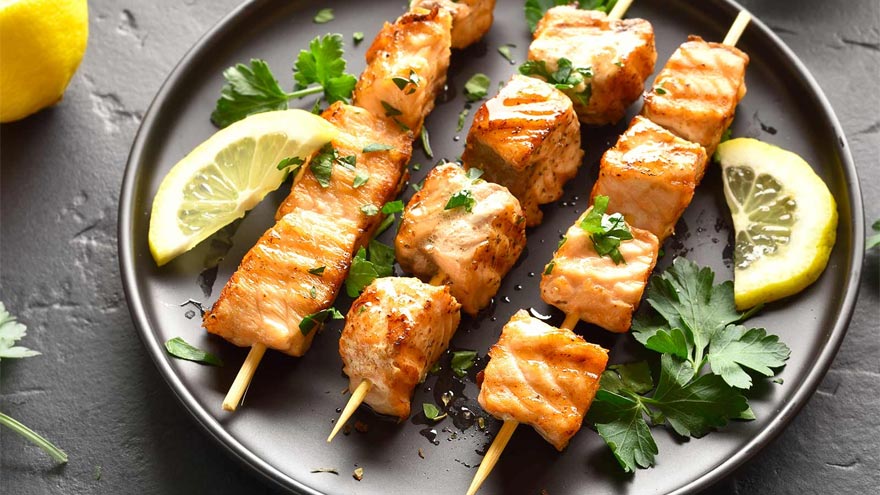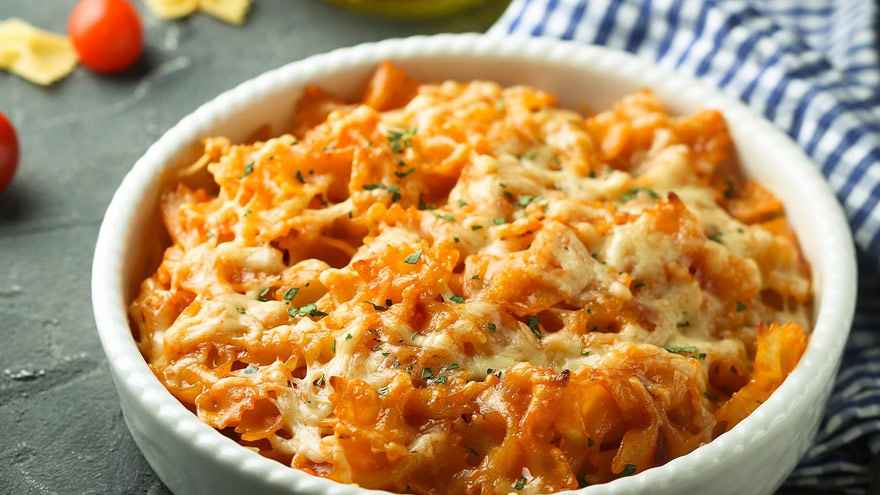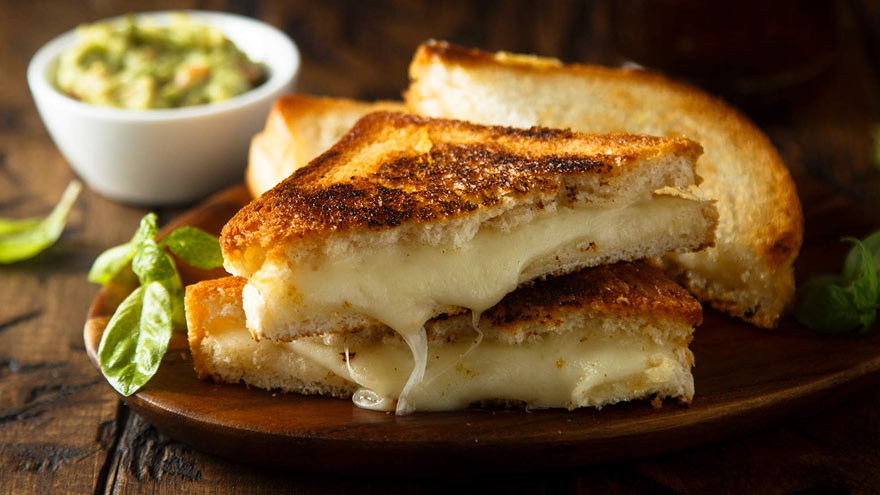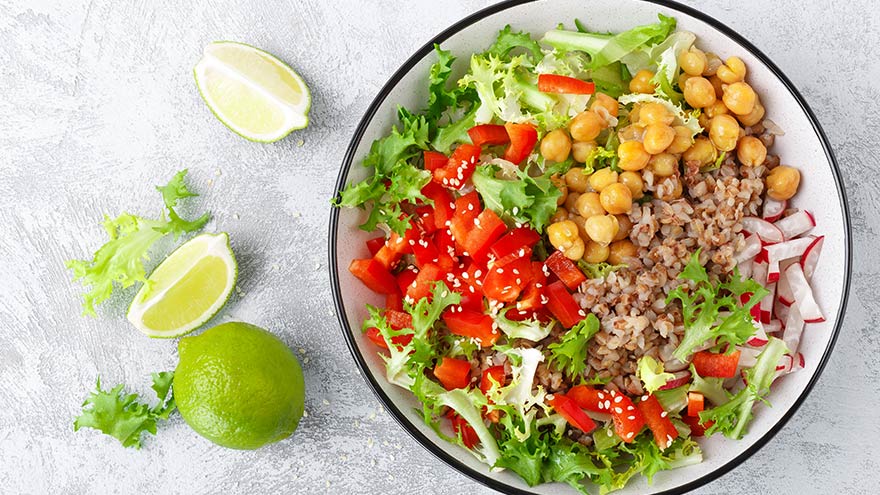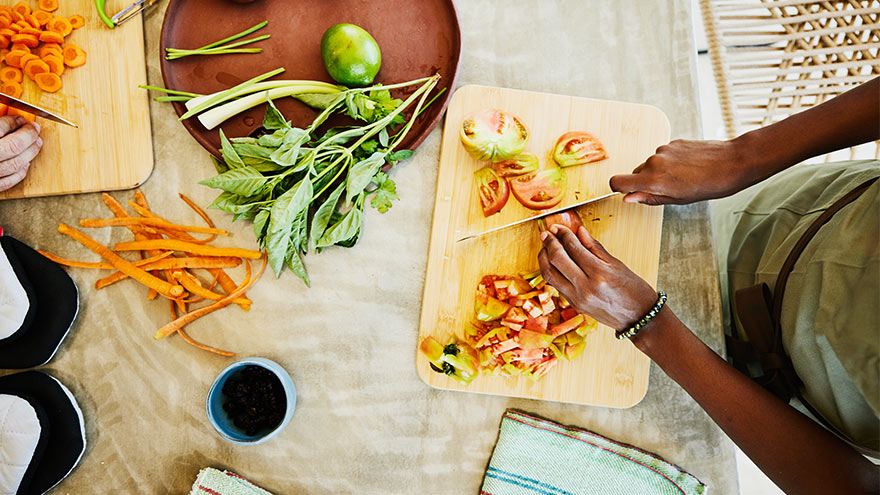Search
Results for 'doctors'
Clear-
What to Know Before You Try Intermittent Fasting
As many people search for diets to try to achieve weight loss resolutions, Kim Colegrove, Renown Dietary Educator, has all you need to know about one of the trendiest diets – intermittent fasting. What is intermittent fasting? Intermittent fasting is an eating pattern that switches between periods of fasting with no food or very restricted caloric intake, and periods of unrestricted eating. The diet has come into popularity as a way to help people lose weight without restricting what they eat, just when they eat. How does it work? The rationale behind intermittent fasting is that the pattern of eating promotes weight loss due to hormonal changes – namely, the decrease in insulin levels – as well as effects on your gut and overall decreased energy consumption. There are various schedules, including alternate-day fasting and time-restricted feeding. For example, one popular method involves restricting your eating period to eight hours per day and then fasting for the remaining 16 hours. Another requires fasting for 24 hours once or twice per week. What should people consider before they try intermittent fasting? Some people have found success in losing weight with intermittent fasting. However, it’s important to note that it’s not a diet that necessarily promotes sustainable habits and lifestyle changes. There’s also not enough research conducted that shows its lasting impact on health, weight, or metabolic improvement. For most, an intermittent fasting diet is just that – a diet. A person will likely lose weight because they consume fewer calories, but keeping the pounds off is an aspect of healthy weight loss that requires a permanent lifestyle change. Who should NOT try intermittent fasting? Intermittent fasting is not for everyone and it can pose a health risk to women who are pregnant or breastfeeding, people with diabetes, and children and adolescents in an active growth stage. Also, it would not be appropriate for those with a history of eating disorders, as well as people with certain health conditions that require them to eat every few hours. You should always talk to your doctor before beginning a restrictive diet such as this, especially if you have a chronic health condition or are taking certain medications.
Read More About What to Know Before You Try Intermittent Fasting
-
Nourishing Your Loved One Through Cancer Treatment
Eating healthy is a daily challenge for many, but for those with cancer, it is an even harder struggle. A cancer diagnosis affects not only those diagnosed but family members and friends, too. One key area of concern is making sure your loved one stays well by eating healthy food every day. Here are some vital cancer nutrition tips from Jessica Blauenstein, a Board Certified Specialist in Oncology Nutrition and Registered Dietitian at Renown Health. Help to Prepare Meals and Snacks for Daily Cancer Nutrition Make it grab and go. Easy-to-make meals help reduce the burden of having to cook and prepare food. Having easy to grab snacks on the counter or in the fridge can help ensure your loved one has access to those nutrients when needed. Sit outside of the kitchen. This allows your loved one to avoid cooking smells which can make them feel sick as a side effect of cancer treatments. Also try serving them cold foods such as sandwiches, cheese and crackers, or shakes which have a mild scent. Try drinkable meals. Some people with cancer find it easier to sip their calories over the course of 30 minutes to an hour. Consider smoothies or supplemental shakes such as Ensure Complete, Fairlife shakes, Orgain shakes, or Boost Plus to name a few. A great foundation for a smoothie is a protein source (Greek yogurt, protein powder, nut butters or milk) with a carbohydrate (fruits, juice or berries). Add other ingredients as desired, such as spinach, kale, and ground flaxseed or chia seeds to give it more vitamins, minerals, and fiber. Snack Ideas for Those Undergoing Cancer Treatment The following ideas are both quick and easy to make for your loved one. Chicken or tuna salad with whole grain crackers or as a sandwich on whole grain bread Greek yogurt mixed with cereal, fruit and/or nuts Cottage cheese with banana, cinnamon and/or peanut butter Favorite fruit with 100% natural peanut or almond butter spread - Try peanut butter with bananas, apples, or even celery Their favorite veggies dipped in a salad dressing of your choice - For example, carrots with hummus, tahini, or ranch dressing Cheese and whole grain crackers - Add tomato slices with a small amount of avocado, and a dash of oregano on top for more flavor Eggs scrambled with cheese, vegetables and/or salsa Peanut butter and jelly sandwich on whole grain bread A baked sweet potato with some favorite toppings Hard boiled eggs and/or egg salad with whole grain crackers, or as a sandwich on whole grain bread Oatmeal or cream of wheat prepared with milk, fruit and/or nuts Sometimes your loved one may not feel like eating or refuse to eat. If treatment side effects are impacting your loved one’s ability to eat, please visit the websites below containing recipes tailored to treat side effects. Cook for Your Life ELLICSR Of course, you may also consult a registered dietitian and/or the patients care team, if you have more cancer nutrition concerns.
Read More About Nourishing Your Loved One Through Cancer Treatment
-
Recipes Healthy Flourless Sweet Potato Brownies
Rich, dark and super chocolaty, these sweet potato brownies are perfect for those following a paleo, vegan, gluten-free or dairy-free lifestyle.
Read More About Recipes Healthy Flourless Sweet Potato Brownies
-
Grilled Lemon Salmon Kebabs
Salmon is a highly nutritious fish loaded with heart-healthy fats. A 3-ounce portion of salmon contains between 700–1,800 milligrams of omega-3 fatty acid. Research indicates that diets rich in omega-3 fatty acids can reduce inflammation and heart disease risk. Because salmon can be a strong flavor, lemon helps balance and bring a light citrus taste. In contrast, dill adds a slightly green, fresh note to this entrée. So, if you’re looking for a quick and wholesome meal, try this grilled lemon salmon kebabs recipe—ready in just 20 minutes!
-
Bruschetta Chicken Bake
Bruschetta Chicken Bake is quick, affordable, and super easy to prepare on a busy schedule. The best part is that you don’t even have to pre-cook the chicken! Instead, serve this meal with a bagged salad and a crusty loaf of bread, and you’ll have a healthy, homemade dinner on the table in no time!
-
Renown Health Food Pantry Nourishes Patients in Need
Unfortunately, many in our community go to bed hungry. Thanks to the support of the Food Bank of Northern Nevada and other local partners, Renown’s food pantry is helping meet the food needs of homeless and low-income individuals in our community. Patients who qualify for the “Food is Medicine Prescription” can receive a bag of food for themselves and each member of their immediate family every week through a free assistance program. This project started last year when Renown began giving food support to hospital and emergency room patients who expressed the need. Food is also given out at the Healthcare Center, which provides affordable access to care for anyone in our community. Those who receive care at the Healthcare Center are also eligible for food assistance. Working Alongside the Community After receiving food deliveries from the Food Bank of Northern Nevada, Renown’s community health team collects an assortment of fresh produce, donated from local grocery stores and other community organizations. Then they put together one bag for each family filled with healthy foods, such as: Whole grain cereals Shelf stable milk Kid-friendly snacks (granola bars, popcorn, graham crackers Proteins (low-salt soups, stews, peanut butter) Seasonal produce Food is Medicine Prescriptions Continue Amidst the Pandemic Throughout the COVID-19 (coronavirus) pandemic, Renown’s community health workers have been working remotely. They continue to reach out to patients who need groceries from the Food is Medicine Prescription program. With this in mind, the food pantry staff is currently coordinating outpatient deliveries to those with a Food is Medicine Prescription. At present, Renown is working to get more refrigeration, shelving and staffing to expand the service to more Renown Medical Group patients in need of food.
Read More About Renown Health Food Pantry Nourishes Patients in Need
-
Make a Healthier Grilled Cheese Sandwich
Friday, April 12 is National Grilled Cheese Sandwich Day! So Let us help you create a healthier melt-in-your-mouth version to this popular cheesy sandwich. Ah, the grilled cheese. It’s the quintessential comfort food that not only pairs easily with a cup of soup, but it’s easy to whip together with just a few ingredients. There are many reasons to celebrate the gooey cheesiness of this toasted sandwich, but at nearly 700 calories, it’s definitely an occasional treat. But with just a few ingredient swaps — think light mayonnaise or toasting the bread in a toaster instead of slathering it in butter — you can remake your grilled cheese into a mouth-watering and nutritious meal. We’ve compiled a couple of easy substitutions, and some of our favorite healthy twists, so you can try a new variation of an old favorite. Be Choosy with Your Cheese It’s the star of your sandwich, but do you need to always grab the yellow slices? Try to opt for stronger flavors, like blue cheese or extra-sharp cheddar, to help you retain flavor while using less cheese on your sandwich. Better Bread Goes A Long Way Plain old white bread might be your toast of choice, but by choosing a whole wheat or multi-grain bread for your sandwich you’re not only adding in new crunch and flavor, you can also increase your fiber and nutrient intake. Hold the Butter Your mom, and maybe even your grandmother, probably spread a layer of butter on your grilled cheese throughout your childhood. But know this: It isn’t necessary. While butter helps crisp the crust, it doesn’t add too much in the way of flavor. Instead, brush the bread with olive oil, or try using a thin layer of reduced-fat mayonnaise or a creamy spread. Or skip grilling altogether by toasting your bread and then baking your sandwich open faced in the oven for a few minutes at 350 degrees. Healthier Options Looking for a new twist? Here are three incredibly tasty (and healthier) versions of the traditional grilled cheese sammy. 1. Baby Swiss And Tomato Grilled Cheese 2. Green Grilled Cheese 3. Spinach, Pesto & Havarti Grilled Cheese
-
Motivating Kids to Eat Healthy Foods
Do you have a picky eater in your household? Or maybe you've got a snack monster who’s all about chips and candy? We're here to share a few fun strategies to motivate your little superheroes to snack on healthy foods instead! Rainbow Power-Up Eating a rainbow isn't just for unicorns! Different colors mean different powers: Red foods like strawberries and tomatoes help your heart. Orange foods like carrots and sweet potatoes help your eyes spot things like an eagle! Green foods like spinach and broccoli help you grow super strong bones. So, create a plate with as many colors as possible. The more colors, the more powers! Super Smoothies Blend your favorite fruits, such as bananas, berries and mangoes. Add some milk or yogurt and a handful of spinach. Your kids won't taste the spinach, and they'll drink a supercharged smoothie that gives them the energy to tackle any challenge. Create a Parfait Packed with Delicious Layers! Veggie Villans Who said veggies can't be fun? Turn them into heroes by giving them cool names and fun shapes. Make carrot sticks "Captain Crunch" or broccoli florets "Broc the Rock." Dip them in hummus or peanut butter for an extra flavor kick. Snack Attack Plates Create snack plates that are as fun as they are nutritious. Combine: Cheese cubes Grapes or apple slices Nuts or seeds Whole-grain crackers Mix and match these for your perfect plate! Make Your Own Trail Mix Fuel-Up Challenges Challenge your kids to eat three different healthy foods each day. Turn it into a family game to see who can eat the most colors or try the most fruits and veggies. You can even draw up a "super snacks" chart to keep track of your progress. Final Super Tip! Even superheroes have cheat days. Don't worry if your family doesn't eat healthy every meal. Just aim to eat more of the good stuff than the not-so-great stuff. Your kid's bodies will reward them with tremendous energy, focus and strength.
-
Summer Buddha Bowl
Say Hello to Summer in a Bowl If you've wanted to add a heart-healthy dish to your recipe repertoire, now's the time. This tasty vegan bowl loaded with turmeric chickpeas, marinated tofu and quinoa offers essential nutrients and beneficial fats to help maintain healthy cholesterol levels and reduce the risk of heart disease.
-
Renown Health Food Pantry Is Nourishing Patients at No Cost
Patients who qualify for a “Food is Medicine Prescription” can receive a bag of food for themselves and each member of their family every week through this free assistance program. Renown Health is proud to offer supplementary food to patients in need through its food pantry. Established nearly a year ago, patients who identify as food- insecure are working with Renown’s community health workers to receive fresh produce, canned goods, non-perishable items and other pantry staples to help nourish themselves and their family at no cost. Thanks to the support of the Northern Nevada Food Bank and other local community partners, Renown’s food pantry is helping meet the food needs of homeless and low-income individuals in our community. “Patients’ responses to our food pantry has been amazing,” said Renown community health worker Seth Rubin. “They are extremely grateful when we give them a bag of food. Their eyes light up knowing that they will have enough food to eat for the week without having to worry about finding a source of food for their family.” To make this assistance program possible, Renown’s food pantry receives food deliveries every Wednesday from the Northern Nevada Food Bank. The Food Bank meets Renown’s team of community health workers, along with churches and other medical organizations, with a semi- truck loaded with a variety of foods. After receiving a pallet with their food order, Renown’s community health team collects an assortment of fresh produce, donated from local grocery stores and other community organizations. After that, the food is unloaded into Renown’s food pantry located inside The Healthcare Center. Renown’s community health workers serve patients in the hospital and emergency rooms, as well as individuals who receive care in The Healthcare Center, which provides affordable access to care for anyone in our community. After expressing a need for food assistance, patients are offered a Food is Medicine Prescription. Through this prescription, they can go to a participating food pantry once a week to receive one bag of food per person in their household. Pantry Continues Amidst Pandemic Since the beginning of the COVID-19 pandemic, Renown’s community health workers have worked remotely, but that hasn’t stopped them from reaching out to patients who benefit from this program. “We’re currently coordinating outpatient deliveries to our patients,” said Rubin. “Every Tuesday and Thursday, we deliver a bag of food to the patient’s house. It has been a great way to continue providing healthy food to our patients while continuing to provide safe care to the patients we see in person at our clinic. Despite our operations being a little different, our patients’ feelings of gratitude and relief remains the same. This is extremely rewarding work and we are proud to continue serving our community throughout these challenging times.” Renown’s food pantry is currently available to patients of The Healthcare Center. Renown is working to get more refrigeration, shelving and staffing to expand the service to more Renown Medical Group patients. Renown patients who qualify for a Food is Medicine Prescription, yet aren’t patients of The Healthcare Center, are encouraged to visit these participating food pantries once a week. The Healthcare Center accepts all Medicaid plans in addition to other healthcare plans. To learn more, visit Renown’s website. For b-roll on this story, please click here. About Renown Health Renown Health is a locally governed and locally owned, not-for-profit integrated healthcare network serving northern Nevada, Lake Tahoe and northeast California. Renown is one of the region’s largest private employers with a workforce of more than 7,000. It comprises three acute care hospitals, a rehabilitation hospital, the area’s most comprehensive medical group and urgent care network, and the region’s largest and only locally owned not-for-profit insurance company, Hometown Health. Renown has a long tradition and commitment to continually improve the care and the health of our community. For more information, visit renown.org
Read More About Renown Health Food Pantry Is Nourishing Patients at No Cost
-
The Salty Six: Are High-Sodium Foods Increasing Your Stroke Risk?
Excess amounts of sodium doesn’t just increase your risk of a heart attack, it can also increase your risk of a stroke. Unfortunately, avoiding that saltshaker may not be enough. Did you know that the average American consumes 3,400 milligrams of sodium each day? That’s a dangerous number considering that the American Heart Association recommends limiting daily sodium intake to 1,500 milligrams (about half the weight of a penny) to reduce the risk of heart disease and stroke. The problem is not necessarily that you’re putting too much salt on your food, it’s that salt is already in the foods you’re regularly eating. To help keep your sodium intake at a healthy level, make sure you’re aware of “The Salty Six,” six sneaky foods that are surprisingly high in sodium. Breads, Rolls and Tortillas: Although breads and tortillas may not initially appear to be high in sodium, we often consume several servings. Make sure to keep track of your total servings to see how they add up. Deli Meat, Cured Meats and Poultry: It may surprise you that six thin slices of deli meat can add up to more than half of your daily limit, so be mindful when building those sandwiches. Also, do your best to avoid cured meats, which often means the meat has been salted. Substitute uncured, skinless meats instead. Cheese: Salt is an important addition in the cheese-making process, as it prevents bacterial growth. Unfortunately, that added salt can increase your health risks. Limit the amount of cheese you add to meals to keep your sodium content down. Pizza: Take a quick look at the first three items above and it should be no surprise as to why pizza made the list. One slice and you’ve met at least half of your daily limit. Go easy on the cheese and try adding more veggies instead of meat. Canned Soup: One cup of canned soup can be as high as nearly 1,000 milligrams of sodium. When shopping for canned soup it’s important to check the label – not just on sodium content but serving size as well. Always select low-sodium options when possible or cook your own soup at home. Sandwiches and Burgers: A sandwich or burger from your favorite restaurant can contain more than 100 percent of your daily sodium limit. When dining out, it is best to select low-sodium options or eat a half portion to limit the amount of salt. If some of your favorite foods are on this Salty Six list, don’t panic. Although these foods can be high in sodium, it isn’t necessary to cut these foods out of your diet completely. It’s just important to eat them in moderation and be mindful of your daily sodium intake. Look for low-sodium options, use herbs and spices instead of table salt and do your best to stay under the recommended daily limit of 1,500 milligrams.”
Read More About The Salty Six: Are High-Sodium Foods Increasing Your Stroke Risk?
-
How Diet Can Affect Cancer Risk and Recovery
Cancer affects millions of lives worldwide. Though medical advancement has done a great deal to increase the human lifespan, proper nutrition has also been proven to help in the prevention of cancer. As researchers continue their hunt for a cure, there is a lot of information out there to support the argument that nutrition is an essential component in disease prevention and management. Nutrition Services: To learn more, call us at 775-982-4000 Linking Diet and Cancer Risk Evidence shows that our diets impact our vulnerability to cancer – and our ability to fight it. The American Cancer Society states that at least 18% of all cancers in the United States are related to excess body weight, physical inactivity, alcohol consumption, and/or poor nutrition. (American Cancer Society Guideline for Diet and Physical Activity | American Cancer Society). Sure, genetics can contribute, but research continues to support the belief that following a healthy diet can reduce the likelihood of developing cancer in the first place. Renown Health’s Jessica Blauenstein, MS, RDN, LDN, CSO, Registered Dietitian and Board-Certified Specialist in Oncology Nutrition confirms the importance of a nutritious diet consisting of: Fruits and Vegetables: Eating a variety of fruits and vegetables provides large amounts of vitamins, minerals and antioxidants. Nutrient-rich, they help in fighting off oxidative stress and inflammation, both of which are factors for developing cancer. Whole Grains: A diet rich in grains such as brown rice, quinoa and oats, contains substantial amounts of fiber that helps in digestion. A few studies have shown that whole grains might offer some protection against colorectal cancer. Lean Proteins: Reducing the amount of red and processed meats in the diet by substituting lean proteins, such as poultry, fish, beans and lentils may lower the risk of developing cancer. Red and processed meats have been associated with colorectal and other cancers when consumed in large amounts. Healthy Fats: Begin focusing on healthy fats from foods like avocados, nuts, seeds and olive oil. These fats are anti-inflammatory, which may play a beneficial role in disease prevention. Avoidance of Sugar and Processed Foods: Sugar and foods high in processed ingredients have been linked to an increased risk of obesity, type 2 diabetes and some cancers. It's important to limit the intake of sugary drinks, candy and snacks in the battle against cancer. A Role of Nutrition in Cancer Recovery Nutrition becomes even more critical for individuals who receive treatment and are in recovery. Treatments such as chemotherapy, radiation therapy and surgery can take a lot out of a body, affecting appetite, digestion and nutrient absorption. Proper nutrition during and after treatment can help: Support Immune Function: A good, balanced diet will provide the essential nutrients that support a resilient immune system, which is important in fighting off infections and supporting overall health during cancer treatment. Maintain Strength and Energy Levels: Proper caloric intake, protein and micronutrients prevent muscle wasting and fatigue, allowing patients to sustain their strength and energy. Address Side Effects: Certain foods and diets can help reduce or alleviate some common side effects associated with cancer treatment, including nausea, vomiting and mucositis. Eating small, frequent meals, maintaining good hydration, and avoiding spicy or acidic foods can all ease treatment-related discomfort associated with the GI tract. Facilitate Healing and Recovery: Nutrient-rich foods promote healing and the repair of tissues that may be damaged after surgery or other medical interventions. Foods high in proteins, vitamins and minerals play a significant role in repairing and replacing damaged tissues and cells. Correct Nutritional Deficiencies: Cancer and its treatment cause vitamin D, vitamin B12 and iron deficiencies in the diet. Nutrition therapy through a registered dietitian or nutritionist can identify those deficiencies and help manage them through dietary changes or supplementary means. Related information: Nourishing Your Loved One Through Cancer Treatment
Read More About How Diet Can Affect Cancer Risk and Recovery
